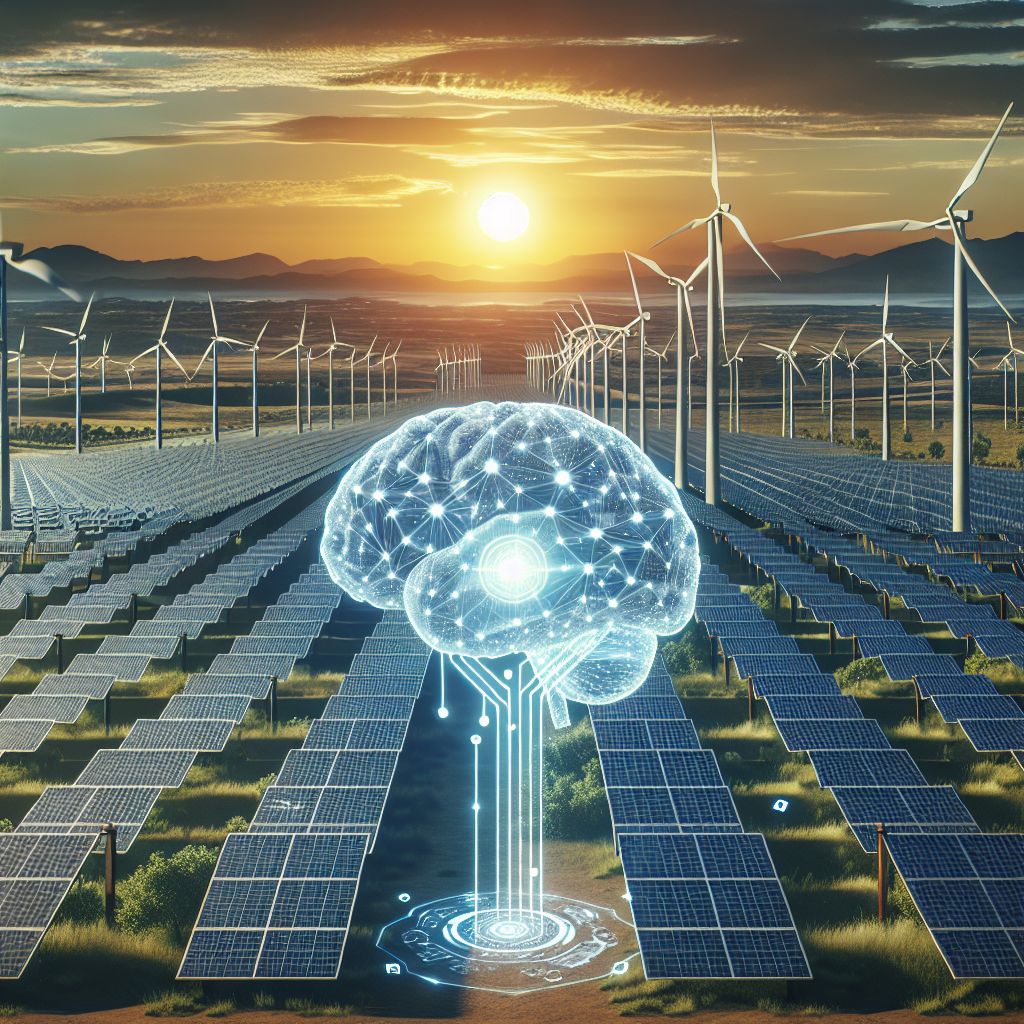The use of artificial intelligence (AI) in various industries has been on the rise in recent years, with applications spanning from healthcare to finance. One area that is increasingly benefitting from the integration of AI is renewable energy generation. The combination of AI technology with renewable energy sources such as solar, wind, and hydropower has the potential to revolutionize the way we produce and consume energy.
AI technology has the ability to optimize the efficiency and output of renewable energy systems, leading to increased energy production and reduced costs. By analyzing vast amounts of data in real-time, AI algorithms can make intelligent decisions to improve the performance of renewable energy systems. This can include maximizing the output of solar panels by adjusting their orientation in response to weather conditions, predicting wind patterns to optimize the operation of wind turbines, and improving the efficiency of hydropower plants by adjusting water flow rates.
One of the key benefits of using AI in renewable energy generation is its ability to predict energy production and demand more accurately. By analyzing historical data and real-time information, AI algorithms can forecast energy production from renewable sources more accurately, allowing utilities to better plan for fluctuations in supply and demand. This can help reduce the reliance on fossil fuels for energy generation and increase the integration of renewable energy sources into the grid.
In addition to optimizing energy production, AI technology can also improve the maintenance and monitoring of renewable energy systems. By analyzing sensor data and performance metrics, AI algorithms can detect anomalies and predict potential failures before they occur. This can help reduce downtime and maintenance costs, ensuring that renewable energy systems operate at peak efficiency.
Furthermore, AI can also play a role in grid management and energy storage. By analyzing data from smart meters and other sources, AI algorithms can optimize the distribution of energy from renewable sources, balancing supply and demand in real-time. This can help reduce energy wastage and improve the stability of the grid. Additionally, AI technology can optimize the use of energy storage systems, such as batteries, to store excess energy from renewable sources and release it when needed.
Overall, the integration of AI technology in renewable energy generation has the potential to transform the way we produce and consume energy. By optimizing energy production, improving maintenance and monitoring, and enhancing grid management, AI can help accelerate the transition to a more sustainable and efficient energy system.
FAQs:
Q: How does AI improve the efficiency of renewable energy systems?
A: AI technology can optimize the performance of renewable energy systems by analyzing vast amounts of data in real-time and making intelligent decisions to improve efficiency. This can include adjusting the orientation of solar panels, predicting wind patterns, and optimizing the operation of hydropower plants.
Q: How does AI help predict energy production and demand?
A: By analyzing historical data and real-time information, AI algorithms can forecast energy production from renewable sources more accurately, helping utilities better plan for fluctuations in supply and demand. This can reduce the reliance on fossil fuels for energy generation and increase the integration of renewable energy sources into the grid.
Q: How does AI improve maintenance and monitoring of renewable energy systems?
A: AI algorithms can analyze sensor data and performance metrics to detect anomalies and predict potential failures before they occur. This can help reduce downtime and maintenance costs, ensuring that renewable energy systems operate at peak efficiency.
Q: How does AI help with grid management and energy storage?
A: AI technology can optimize the distribution of energy from renewable sources, balancing supply and demand in real-time. This can reduce energy wastage and improve the stability of the grid. Additionally, AI can optimize the use of energy storage systems, such as batteries, to store excess energy and release it when needed.

